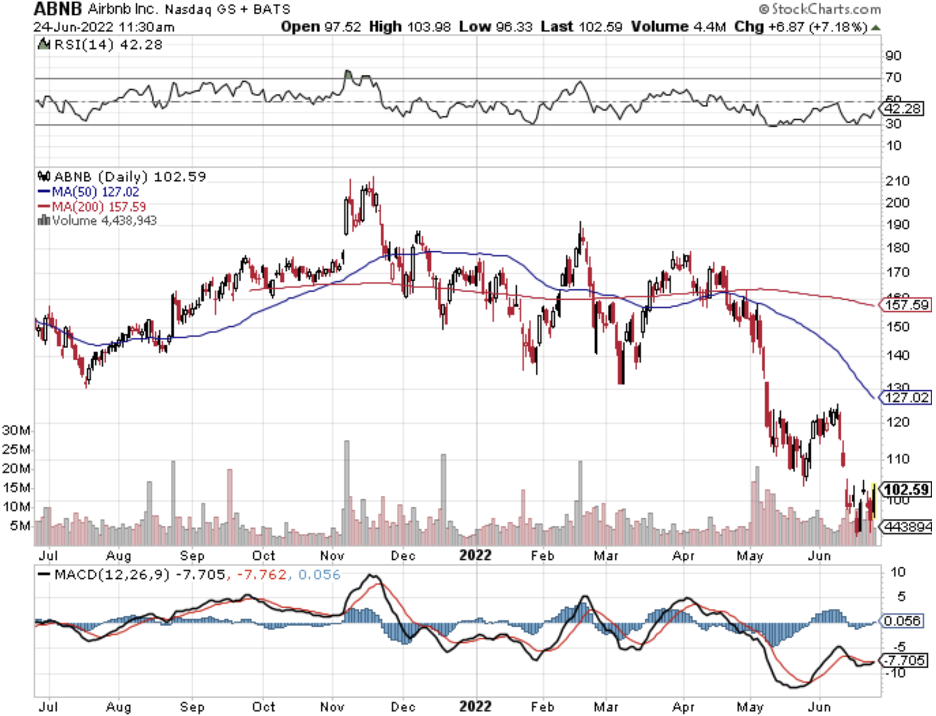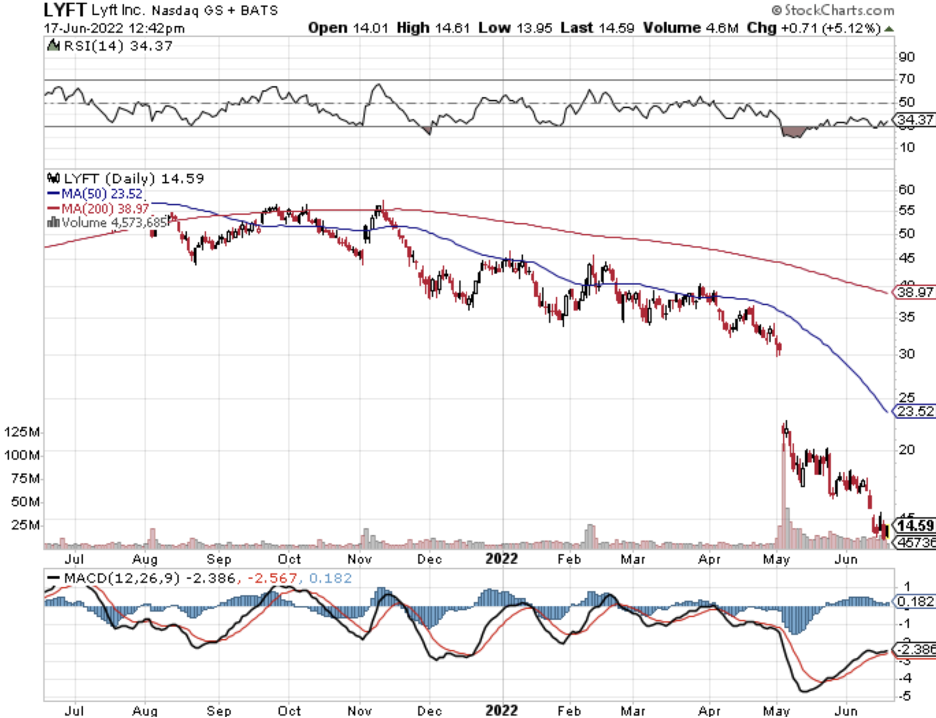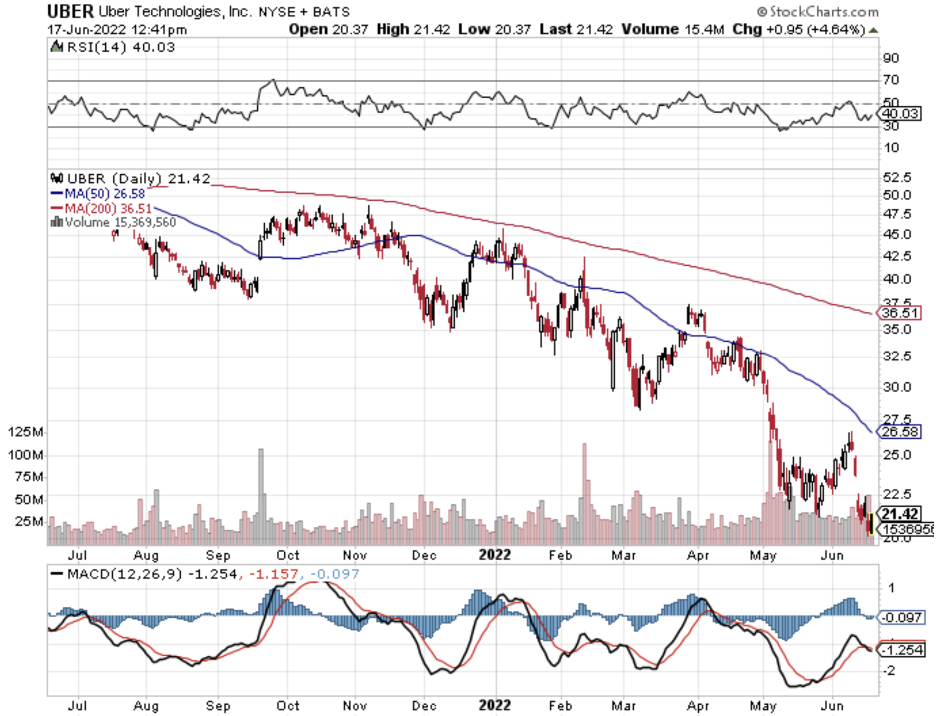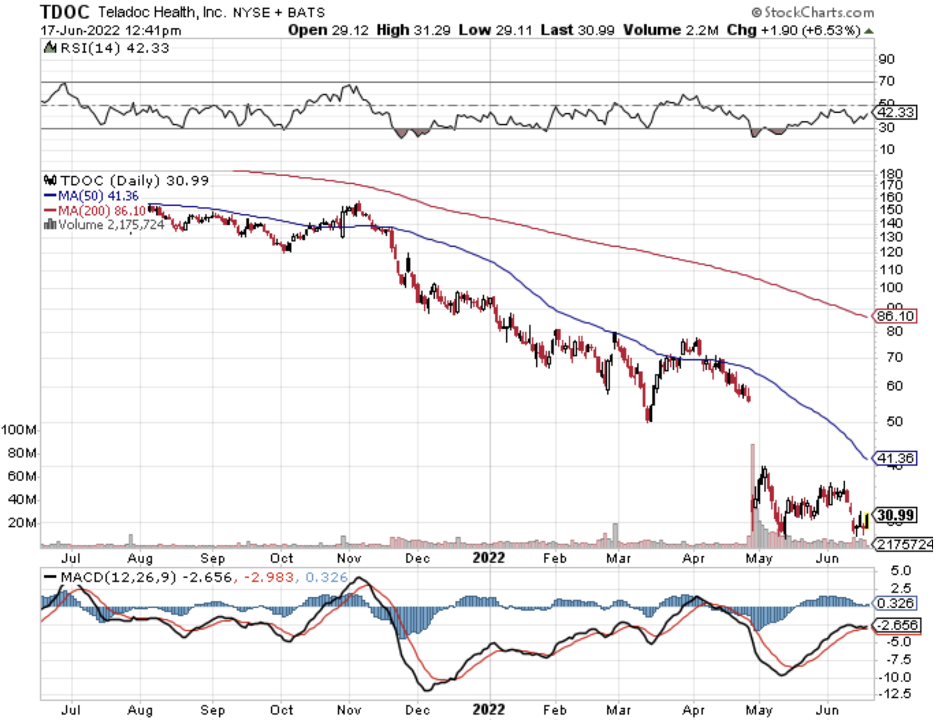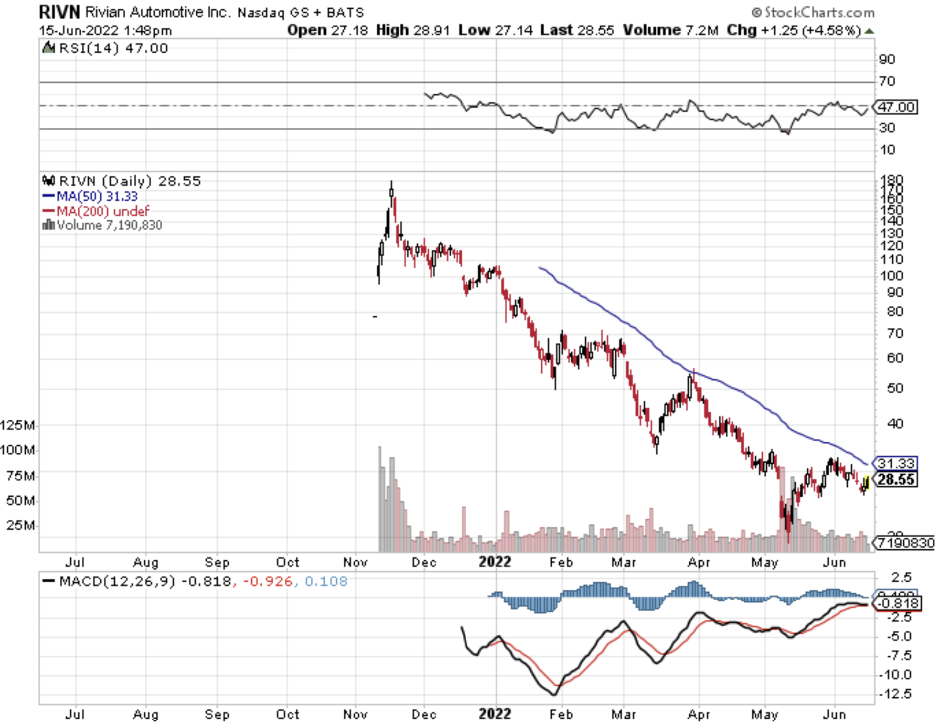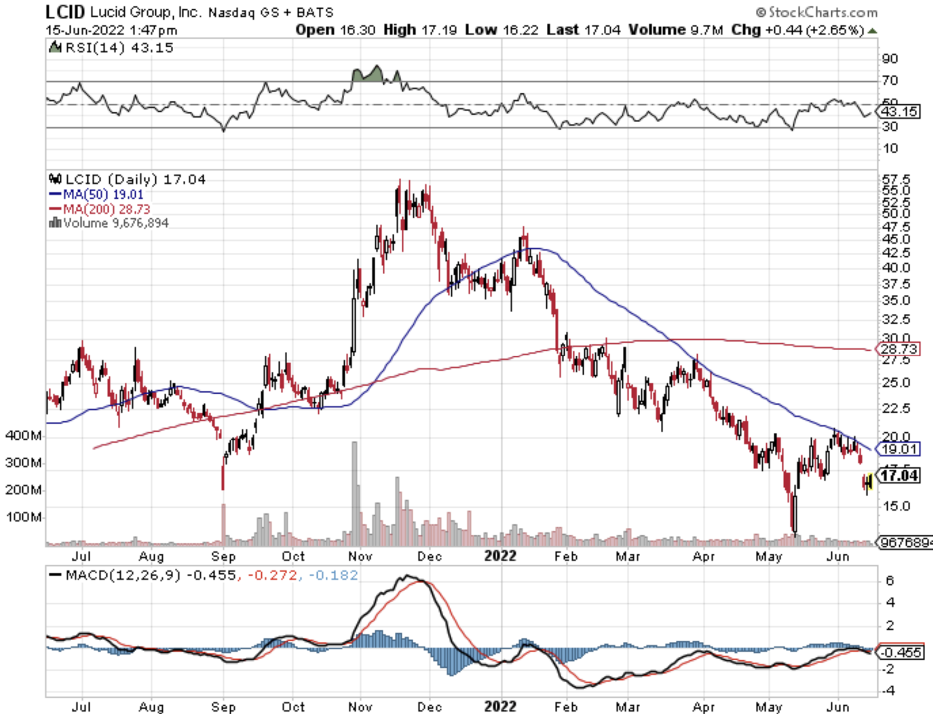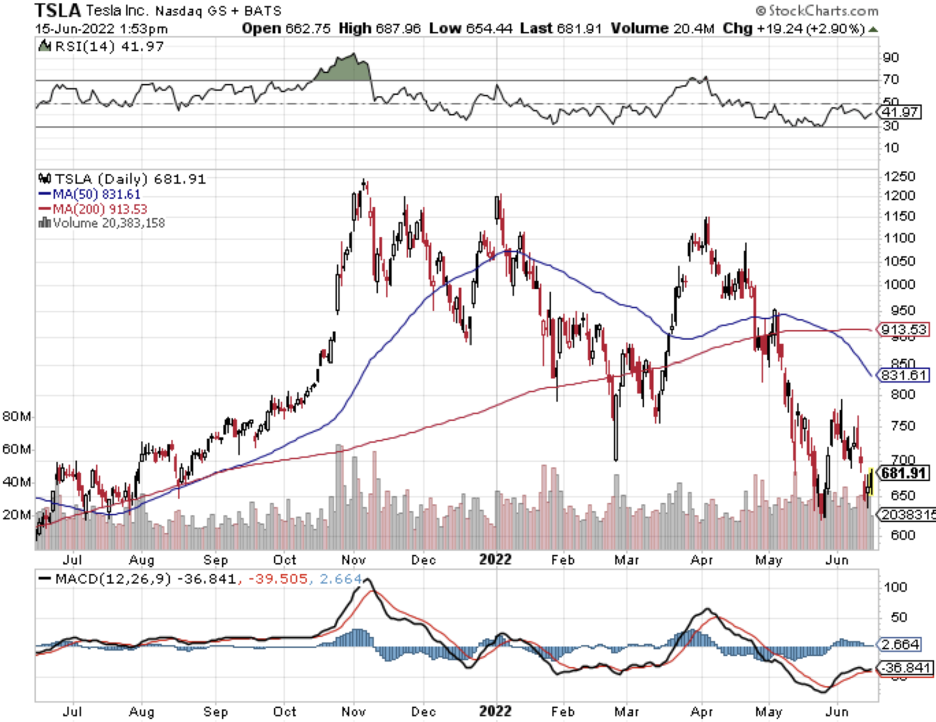Airbnb’s (ABNB) stock has about halved from $206 at the tech market peak of 2021 to around $100 today.
The strength in the first half of 2021 resulted from the optimism coalescing in travel circles about the reverse of shelter-at-home lifestyle to unfettered international travel.
Remember back then, increasingly more countries were allowing Americans into their land with proof of 2 Pfizer shots.
The $130 to $206 rise was simple an overshoot.
Sentiment was at a generational low during 2020 and the upside was merely a result of the extreme reverse of great pessimism to ultra-optimism.
At a micro level, Airbnb’s business model mirrored the same sentiment of the 2020 tsunami of travel cancellations.
Bad optics has been a staple for CEO Brian Chesky.
Then the onslaught of arbitrary refunds to customers alienated the Airbnb host.
They slowly changed their policy to remove “extenuating circumstances” as a reason to get a full refund.
It wasn’t that I had a problem with Airbnb going to $206.
Like many tech growth stocks, they tend to go parabolic during good times.
Tech firms with better balance sheets haven’t halved in value like Airbnb.
That being said, Airbnb is not worth the current $60 billion and a 74 P/E ratio is too expensive at a fundamental level.
After halving, I still think the valuation is a tad bit too generous.
I believe the company is worth $60 billion only if interest rates are close to zero and not the 3.1% we have today on the 10-year US treasury.
The company is worth significantly less in its current form in 2022 and as rates accelerate from 3.1% to 3.5 or 4%, I expect the company to be worth $45 billion.
On the demand side, travel is a lot more expensive now than ever.
I am not only talking about airfare, but also airport car transfers, price for baggage, entertainment, food, and accommodation which are all trending above 40%-80% depending on the item in tourist areas.
However, Americans are making summer of 2022 the “revenge” trip of a lifetime.
The pre-pandemic overtones of fear of missing out (FOMO) and you only live once (YOLO) are back stronger than ever on short-form video platforms like TikTok and Instagram.
One might believe Airbnb stock should be cruising on auto pilot, right?
Well, the revenge travel of summer 2022 is already baked into the price of the stock since this behavior was largely understood 6-8 months before.
The drop in shares has to do more with the lack of incremental demand that will follow the summer of 2022 as the US barrels towards a recession.
Yes, travel will decelerate fast after summer 2022 as Americans blow their load while failing to reload for the 2nd half of 2022.
This is awful news for Airbnb stock.
Another element is gas prices.
The cost of gas and groceries is about to explode as Americans need to fill up their tank and buy groceries for Independence Day celebrations all in unison.
The pitiful energy infrastructure that has been gutted by the current administration won’t be able to handle the elevated demand.
This will 100% limit the budget of Airbnb for Americans.
Airbnb posted an average daily rate (ADR) of $168.46 in Q1, up 5.3% YoY.
However, its growth has decelerated from previous quarters and I expect it to fall even more later this year.
Until we capitulate, the downtrend likely won’t reverse because the business model isn’t that bad and they do boast a monopoly.

